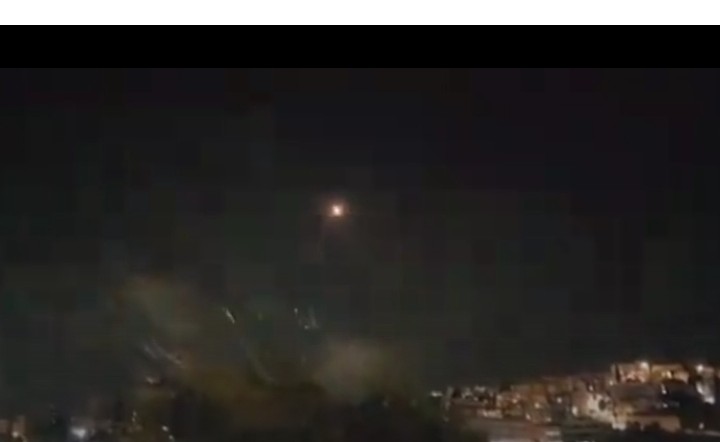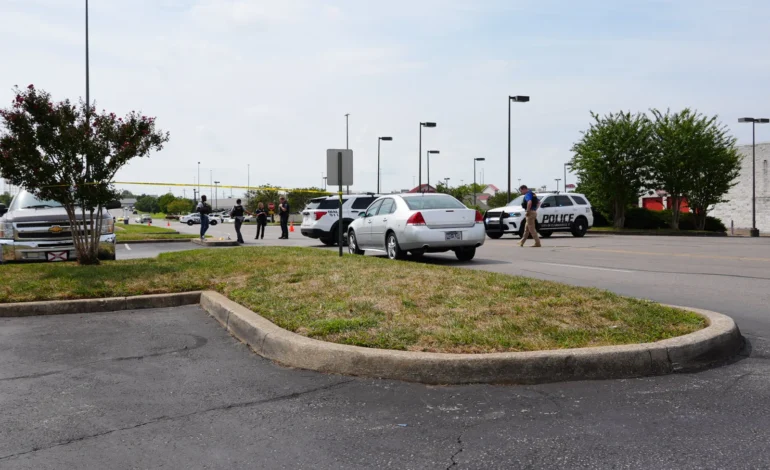
Hezbollah launches massive rocket attack near Haifa, Israel
In a significant escalation of hostilities, red alerts have been activated across northern Israel, particularly near the city of Haifa, as Hezbollah launched a large-scale rocket assault targeting the region. The barrage of rockets, aimed at civilian and military infrastructure, has triggered widespread emergency sirens, plunging the population into a state of high alert. Haifa, one of Israel’s largest cities and a critical economic hub, has been the focal point of this assault, raising serious concerns about the potential for further escalation in the ongoing conflict between Israel and Hezbollah. As the rockets flew overhead, residents scrambled for safety, seeking shelter in designated safe zones as instructed by local authorities.
The sudden onslaught has been described as one of the most intense rocket attacks in recent years. Residents of Haifa and the surrounding areas were jolted by the unmistakable wail of emergency sirens, which are designed to alert civilians to incoming rocket fire. The sirens, followed by the sound of explosions in the sky, marked the beginning of a tense and terrifying episode. Families, businesses, and schools were immediately disrupted as people rushed to their nearest shelters, well aware of the gravity of the situation. The air was filled with a sense of uncertainty, as no one knew just how long the rocket fire would last or where the next missile might land.
In response to the barrage, the Israeli Defense Forces (IDF) swiftly deployed their advanced air defense systems, including the renowned Iron Dome, which has been instrumental in intercepting incoming projectiles and mitigating damage from rocket attacks. The Iron Dome system has proven highly effective, neutralizing many of the rockets before they could reach their intended targets. However, with such a large-scale assault, the IDF faced a monumental task in defending the region, as Hezbollah’s arsenal of rockets posed a significant challenge to even the most sophisticated defense systems.
As the Iron Dome worked tirelessly to intercept the rockets, the Israeli government issued public safety warnings, urging civilians to remain in secure locations and refrain from unnecessary travel until the threat subsided. Local authorities in Haifa activated their emergency protocols, with police, firefighters, and paramedics on high alert, ready to respond to any potential casualties or damage caused by the attack. Public shelters were opened across the city, and those without access to secure locations were advised to find refuge in the safest part of their homes, away from windows and vulnerable areas.
Despite the intensity of the assault, Magen David Adom (MDA), Israel’s national emergency medical service, has not yet reported any casualties. However, the psychological toll on the civilian population is undeniable. The fear and anxiety that accompany such attacks leave a lasting impact on those forced to live under the constant threat of violence. While no injuries have been reported so far, the danger remains, and the situation could change rapidly. MDA paramedics and medical teams remain on standby, prepared to respond to any emergencies that may arise in the aftermath of the rocket fire.
This latest escalation comes amid rising tensions between Israel and Hezbollah, the Lebanese militant group backed by Iran. For years, the border between Israel and Lebanon has been a flashpoint for sporadic clashes, but the scale of this rocket attack marks a significant escalation. Hezbollah’s decision to target Haifa—a major population center—underscores the severity of the conflict and raises concerns about a broader war in the region. The Israeli government, while focused on defense, is also considering its next steps in terms of retaliatory action, as it seeks to neutralize the threat posed by Hezbollah’s growing military capabilities.
As the situation unfolds, international observers are watching closely. The United Nations, the European Union, and various world leaders have called for restraint and a cessation of hostilities. However, the reality on the ground suggests that the conflict could intensify before any diplomatic solutions are reached. Hezbollah’s rocket fire into Israel, and Israel’s air defense response, could easily spiral into a larger confrontation, with both sides escalating their military actions. The risk of civilian casualties on both sides remains high, and the possibility of further destabilizing the region looms large.
The residents of Haifa, meanwhile, are left to grapple with the immediate aftermath of the assault. The sound of rockets and intercepts in the sky has become all too familiar for many Israelis living near the northern border, but each new attack brings fresh waves of fear and uncertainty. For those living in the city, the psychological toll of repeatedly seeking shelter and the constant threat of violence is deeply distressing. Schools and businesses have been closed, and daily life has ground to a halt as people prioritize their safety over their usual routines.
The Israeli government, under pressure to protect its citizens, has vowed to respond decisively to the attack. Prime Minister and military officials have been holding emergency meetings to assess the situation and determine the most appropriate course of action. Retaliatory airstrikes against Hezbollah targets in Lebanon are being considered, as Israel seeks to prevent further rocket attacks and degrade Hezbollah’s military infrastructure. However, any Israeli military action risks sparking a wider conflict that could draw in other regional actors, including Iran, which has long supported Hezbollah.
As Israel contemplates its next steps, Hezbollah has remained defiant. The group has framed its rocket attack as a response to Israeli military operations and what it describes as Israeli aggression in the region. Hezbollah’s leadership has warned that further attacks could follow if Israel retaliates, creating a dangerous cycle of violence that could engulf the region in a protracted conflict. The international community is urging both sides to exercise restraint, but on the ground, the situation remains volatile and unpredictable.
The rocket attack on Haifa is a stark reminder of the fragile nature of security in the Middle East. Despite efforts by various governments and organizations to broker peace, the underlying tensions between Israel, Hezbollah, and other regional actors continue to simmer just below the surface. The latest escalation is a reminder that the region is never far from the brink of war, and that the civilian populations on both sides of the border are often the ones who suffer the most. As the people of Haifa emerge from their shelters, they do so with the knowledge that the threat of violence is never far away.
In the hours following the rocket barrage, the focus remains on maintaining public safety and assessing the damage caused by the attack. While the Iron Dome system has successfully intercepted many rockets, some may have slipped through the defense grid, potentially causing damage to property or infrastructure. Emergency teams are working to survey the area and ensure that any damage is promptly addressed. Meanwhile, the residents of Haifa remain on high alert, aware that the rocket fire could resume at any moment. For now, they wait, hopeful for peace but prepared for the worst.


